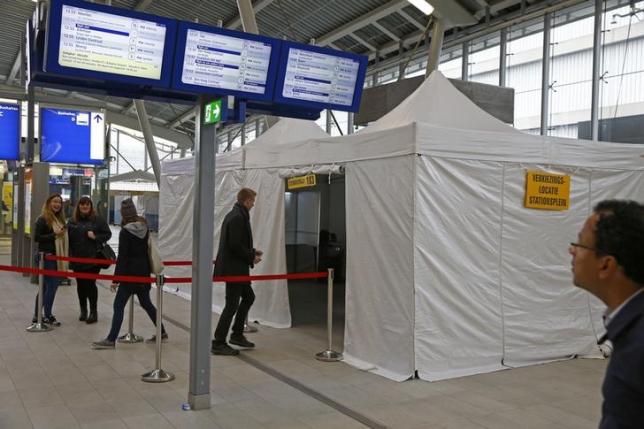Disappointed Ukrainians turn fire on leaders after Dutch vote

KIEV – Ukrainians blamed their political leaders on Thursday for not doing enough to tackle corruption and improve the country's image, after Dutch voters emphatically rejected a treaty on closer ties between the European Union and Ukraine.
The Association Agreement, which aims to forge closer political and trade ties, was the spark for the pro-European Maidan protests in 2013/2014 that brought down a Kremlin-backed president and triggered Russia's annexation of Crimea.
In the Netherlands, the non-binding referendum could spell trouble for the increasingly unpopular government of Prime Minister Mark Rutte. It could also fuel an anti-establishment mood ahead of the Brexit vote in June.
In Ukraine, the disappointment reflected disillusion with Western-backed leaders who came to power after the Maidan, as corruption scandals and party squabbles stymied reforms.
"People there in Europe understand the level of corruption, that the authorities are now simply incapable of doing anything better for their own citizens," said Ilya Zhyzhyyan, a 29-year-old Kiev resident. "So the Dutch probably think – why do they need a country that can't do any good for its own people?"
With its ties to Russia ruptured and Kiev still fighting a Russian-backed insurgency in its eastern industrial heartland, Ukrainian President Petro Poroshenko said the Dutch result would not blow his country off a European course.
Poroshenko's predecessor, Viktor Yanukovich, fell after mis-calculating the cost of bowing to Russian pressure and backing away from signing a political and trade deal with the EU which had been long in the making.
His swerve away from Europe towards closer ties with Moscow brought thousands out on to Kiev's central Independence Square and, after 100 protesters were shot dead in February 2014, he fled the country.
Russian Prime Minister Dmitry Medvedev said the Dutch vote reflected Europe's opinion of Ukrainian politics.
"The result doesn't affect Ukraine's European integration, but in the long-term it shows that not all of Europe is waiting for us with open arms," said political analyst Volodymyr Fesenko.
"Our European prospects will not depend on the result of the referendum but on how successful our reforms will be, our fight with corruption and whether Ukraine will become a democratic country."
The vote came days after disclosures in the so-called "Panama Papers" that Poroshenko had set up an offshore company in 2014 at the height of Ukraine's battle against the separatists. He has denied wrongdoing.
Iryna Herashchenko, a lawmaker with Poroshenko's party and the head of the Ukrainian parliament's committee on European integration, blamed the fallout from the Panama leaks for negatively influencing the Dutch vote.
She also blamed "other developments in Ukraine - the incapacitated government, the populist parliament, the lack of a critical mass of responsible politicians and officials in all state institutions, corruption, irresponsibility, 'technocrats' who screwed up and disappeared on holiday, wimps, poor communication, and a lack of dialogue with the people."
"It is a very poor reflection of anyone linked to government institutions in Ukraine," she wrote in a Facebook post.
Ukrainian opinion polls show that, for many, corruption has stayed the same or even got worse and support for Poroshenko and Prime Minister Arseny Yatseniuk is in single digits.
The vote "means that they probably don't really want to welcome us in Europe," said Taras Voychenko, a 50-year-old Kiev resident. "That's all. Why? Who needs a country that is sinking into the mud?" –Reuters







